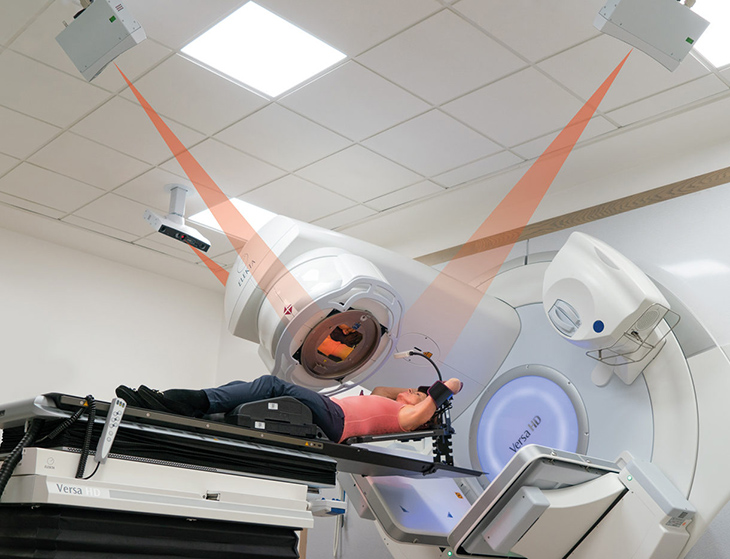Many Experts Believe That Older Women Who Have Gone Through Surgery For Breast Cancer May Avoid Radiation

Women diagnosed with breast cancer also may have to go through radiation. They say that this procedure can often have bothersome side effects. In fact, experts new say that older breast cancer patients may avoid it to enjoy better quality of life. In fact, a new study says that for some women over the age of 65, radiation after breast cancer surgery doesn’t make a difference in their overall survival chances.
In fact, for women 65 years or above and who are living with breast cancer, the chances for survival are nearly the same whether or not radiation follows surgery. This was according to a study published February 16 in the New England Journal of Medicine. The findings of the study suggest that it may be possible for some women to just skip the tiring and uncomfortable radiation treatment that many have already endured.
For people who have been diagnosed with early breast cancer, “historical trials showed that radiotherapy reduced the risk of recurrence within the breast after breast conserving surgery … by three- to fourfold,” said the lead study author, Ian Kunkler, MB BChir. He is an honorary professor of clinical oncology at the University of Edinburgh in Scotland.
However, many of these previous trials included only younger women. So, it’s not extremely clear whether or not radiation would also benefit older adults that have similar tumors, Dr. Kunkler stated. Now, the results of this latest study suggest that radiation, which, on its own, has some difficult side effects such as breast pain, fatigue, and heart risks, may not always be the course to take for the older women.
Survival Rates Were Found to be Almost Alike With or Without Radiation
A total of 1,326 women were involved in the study and all of them had small hormone-receptor positive (HR+) tumors. They all were recipients breast-conserving surgery. This was then followed by hormone therapy (also called endocrine therapy) that was made as a preventive approach. Half of these women were also randomly assigned to receive radiation. As for the other half, they simply skipped the procedure altogether.
The researchers saw that the ten-year overall survival rates were basically alike for both groups, at 80.7 percent among those who got radiation and 80.8 percent among those who didn’t go through it.
The findings of the study align with what many oncologists have been saying, and that is to take a more nuanced approach to the treatment of early breast cancer, shared Kunkler. “At present there is a trend towards trying to de-escalate treatment for patients with early breast cancer and move away from a ‘one size fits all’ approach,” he explained. “Research is focused on identifying subgroups of patients based on clinical, pathological, and molecular features of breast cancer who may derive little or no benefit from postoperative radiotherapy.”
Radiation Helps to Prevent Recurrence of Breast Cancer Tumors
While the survival rate was the same for patients who had and didn’t have radiation, it does help prevent tumors from recurring.
Without radiation therapy, around 9.5 percent of women had cancer return in the same area within a span of 10 years. They compared this with the fewer than 1 percent women who got radiation.
One in eight women in the United States will experience breast cancer at some point in their lives, as per the American Cancer Society; and around 50 percent of them will be at least 62 years of age when the cancer is diagnosed.
There also previous researches made that have considered and studied the potential for endocrine therapy to lower the chances of recurrence in those who don’t go for radiation. There was a five-year study of 500 women aged 55 and older, presented at the 2022 meeting of the American Society of Clinical Oncology, for this and experts saw that radiation didn’t have much difference on the odds that cancer recurring in the same breast where it had first been diagnosed.
“The addition of radiation does not impact survival in older women with low-risk breast cancer, as long as endocrine therapy is taken,” said Alice Y. Ho, MD. She is the codirector of the breast clinical research unit at Duke University Medical Center in Durham, North Carolina.
“However, radiation does significantly reduce the risk of local recurrence,” said Dr. Ho. It also must be noted that she wasn’t part of the new study or the 2022 research made. “Therefore, the decision really should be individualized to the patient, and physicians should help patients navigate this decision-making process.”



